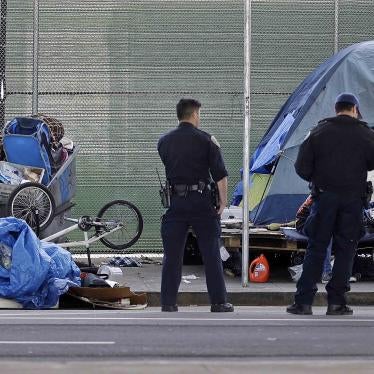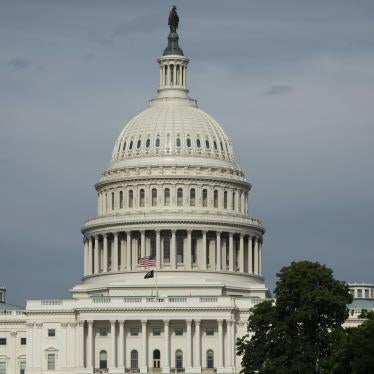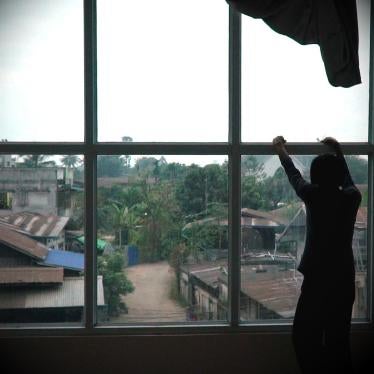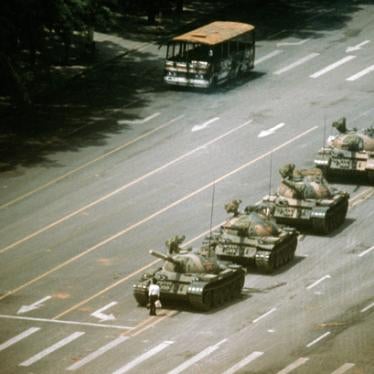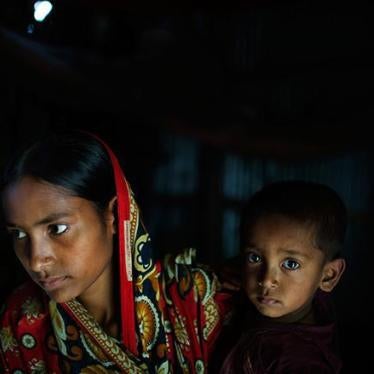
阅读这支影片的文字描述
[Text]
Over 75,000 people are without housing in the county of Los Angeles.
The city has authorized LA Sanitation to conduct systematic clearings of unhoused encampments, enforced by the Los Angeles Police Department.
The operations are known as 'sweeps.'
Numbers of unsheltered residents continue to increase as wages fall far behind the cost of housing.
Six unhoused people die every day in LA County.
swept
part one
[We see a small encampment next to a canal.]
MICHELLE: They woke us up this morning telling us that they're going to do a clean sweep, and that to grab what we can, and to get out. Because they were taking everything else.
They take our food. They took all my underclothes. They took all my shoes. They leave us with no resources. So we're stuck here until we can manage to get something to eat or clean water or whatever it is, because they don't care.
I've been here four years on the river, and they've done this to us three times already.
Everybody gets to arguing.
Everybody gets to fighting.
Your relationship falls apart.
Your family falls apart.
I was a manager of a laundromat. The minute Covid hit the owner he was gone. Took all the money from all the machines. He left me there with nothing. I lost my job, I lost my house. It's mainly me, my family. My son, my boyfriend, my friend.
This is our home right here. Because we're together. I feel like I'm the mom. Everybody comes to me, like, "What are we going to do? What are we going to do?" I don't know anymore.
If we don’t stick together... we won’t make it.
PETE WHITE, Los Angeles Community Action Network: Over the last decade here in Los Angeles, houselessness has exploded.
The city has made the choice to use criminalization and sweeps as the answer to houselessness.
Criminalization, in the most simple sense, is the use of laws and policies and regulation to arrest, displace and banish poor people
from places that government does not want to see them.
BECKY DENNISON, Venice Community Housing: I cannot answer the question as to why Los Angeles, or any other locality would still be using a criminalization model. It clearly does not work.
Los Angeles has the most unhoused people and for many, many years was using the most punitive criminalization measures.
And then if you put the institutional racism on top of that, Black folks are something like seven or eight times overrepresented in the unhoused community.
[Several police officers and city workers are seen conducting a sweep.]
MAN: They can’t throw my family heirloom away!
PETE WHITE, voiceover: Most people, when they hear the word "sweeps," they think like sweeping the sidewalks is a great thing. But sweeping an encampment, this entails scores of police. Heavy industrial equipment.
Where else in the world would one use a bulldozer to remove a camping tent?
[Person with megaphone]: People are going to be sitting on the side of the curb, trying to figure out how they're gonna get the money to buy a stick of deodorant. This is very violent.
You have a man who has a whole mechanic shop out here. And you guys just bulldoze people’s stuff away, like it don’t mean nothing.
[A person carries a ladder away from police.]
He wants his ladder. He wants his ladder, man.
PETE WHITE, voiceover: Once we actually understand the purposes of a sweep, and that purpose is not to help get the individual into housing, then we understand that there's something really broken with this system.
[pause]
[A man examines the contents of a box outside.]
HARVEY: Want some Narcan? Joanna brought me a whole box again, and it’s good until 2026. That's good.
I'm not a drug addict. I don't want to do it. But then again, I can't turn my back.
That's one thing I will never do, is turn my back on somebody who needs stuff like this.
I've been doing it for the 24, next month will be 25 years that I've been living out here.
Now we have to move.
[We see a flier taped to a utility pole with the title "NOTICE MAJOR CLEA" and a date and time.]
I get it that they want to fix this up, and that's why we have to leave. But we're not gonna be able to come back.
Shouldn’t have had all this stuff.
They’re gonna fence it. They're gonna put a fence here so that nobody can come in here to stay.
We are a community. When you see a group of homeless people, that's community.
[Standing in a tent encampment as people pack belongings into a truck, Harvey hugs a woman.]
HARVEY: Thank you for coming.
HARVEY, voiceover: They're all set up near each other, that's community. But see, they don't see it that way. They don’t see that we actually can protect each other.
I became homeless after I lost my house due to a fire.
I was on the freeway, I was moving in, I was coming over here to LA.
All of a sudden, I started getting tunnel vision.
And I went to the doctor and I was shaking, really shaking so much that he just stood there looking at me, and he knew that it was the Parkinson's.
I can feel that it wants to act up. I'm not young anymore, so I really wish I had my own place, that would help me with not only getting off the streets, but it would also help me with my medical problems.
If I start to shake at least it’ll be in private. Not in a tent.
[pause]
[Two women walk across a street. One of them is pulling a wagon full of paper bags.]
SONJA: So we do a lot of outreach at the Grand.
We haven't done around the building yet, so that's why we were talking. Because there's a lot of unhoused people right here.
People get lost. Like when they look at somebody that's unhoused. They just see this, like, drug-addicted, damaged person.
They don't ever look at someone like, oh, they have a family.
That's some down there? Yeah. Down there.
[Sonja and her companion are talking with a man next to a tent.]
MAN: How much is it?
SONJA: It’s free.
MAN: I’ll take it.
SONJA, voiceover: Pretty much most of Los Angeles is a paycheck away from being unhoused.
You could lose your job, lose a spouse, have something maybe traumatic happen and maybe lose your mind for a moment.
It could happen to anybody. I've met lawyers. I have a friend who used to be a nurse. It's the worst feeling in the world to have somebody walk by you like you're not even there.
[Sonja walks by a broken fence along a street.]
So yeah, we used to stay right here, like along this fence.
So you can tell where mine is, see where the cutout is? That hole right there?
[laughing] We had that hole!
I lived right there for the majority of the time that I was unhoused. Close to seven years.
Every Tuesday, all of that area would get swept.
It would be like half the police for was out there. Like are you kidding me?
The minute eight o'clock would hit, they would throw up the tape. And if you didn't have one thing, you lost it. They didn’t care. They would throw your s**t away, and not even think twice about it.
[Images of black & white photos.]
I had a lot of personal family photos. Things from my dad who passed away, and they got swept.
It was like super demeaning, you know?
And, you know, I sat in that space for a really long time when I was unhoused.
Like I was undeserving of doing better.
PETE WHITE: So of course the effects of criminalization on houseless people, it's a horrible disruption.
GENERAL DOGON, Human Rights Organizer, LACAN: They start off. They don't come and just unzip your tent and walk in. No. They start off with a razor blade. And slice your tent down the middle, killing your tent right there. It ain't no good no more.
GISELLE HARRELL, Resident and Organizer, Aetna Street: So they're there to specifically take our personal belongings and throw it away.
So I'm like, it's not a cleanup.
GENERAL: They took this woman's urn of her mother’s ashes. And I mean, the screams that woman would yell, was like somebody was taking her baby away from her.
[A man with a face mask carries a meowing kitten.]
RONALD PAUL HAMS, Resident and Organizer, Aetna Street: Just last week, I lost everything from personal belongings, to electronic devices... I.D., everything, so you know, I have to start over, pretty much all over again.
GISELLE: And it's a traumatic event. Like every week. Every week we have to go through this.
RONALD: I went overseas and I fought for my country and watched a couple people die for theirs.
I can't even walk on it or live on it or lay on it?
That's a slap in the face.
SONJA: When you're on the street, you feel like completely isolated. Even though you're around a billion people. You're, like, alone in your head.
Makes it very hard to get your feet back on the ground, and that f***s with your head after a while.
I don’t know. It’s like really, really cruel.
[pause]
[Text]
part two
[Michelle, from part one, walks toward a bag checkpoint.]
MICHELLE: I got lucky because I network and network and network, and I was the lucky one that they had one space for a woman.
And I got a Chinatown container home.
The sadness from not having a place went away.
And then I became sadder because I'm by myself.
[Michelle takes a seat on a city train.]
MICHELLE: I do this every day.
Because I could be in my little room, with my heater and air conditioning.
But what's the point of that, if my heart is right here with my family and friends?
They should have took us all together.
[Michelle walks into a tent encampment.]
WOMAN, with dog: She just ate a whole bowl of food!
MICHELLE: It's my son, my boyfriend, my friend, my daughter-in-law. They're all out here still. I'm not leaving them like that.
I’m the mom.
Since we can't afford to buy clothes all the time. So we sew everybody’s holes!
Like hoodies, jackets...
What would I like?
I would like everybody to get off the streets, into some kind of housing, and not have to be like this.
[Michelle is back on the city train.]
MICHELLE: It's not right.
So I go home, I come back. I go home...
I’m the mom.
I have to come back.
[pause]
[Harvey, from part one, is walking along the street.]
HARVEY: What are you guys up to?
They’re chasing us out of here.
They’re going to take us on a bus. Three of us, with our stuff to the motel.
I couldn't sleep last night.
I was thinking about what's happening today because I have to get rid of stuff and you can only take so much.
We'll give you 60 gallon bags, two.
Whatever you fit in that, is what you can take to the room.
BECKY DENNISON, voiceover: Emergency housing is really, really expensive. The one that's the most unsustainable is the use of motel rooms.
Paying $140, $180 per night. We're talking thousands of dollars per person to live in these motel rooms. And it is absolutely not sustainable.
It comes at the expense of people's lives and at the expense of permanent housing options that could have been invested in with that same amount of funding.
So if it really was, you know, 60, 90 days and then they’d be moving on, you know, that could work.
But that's not the way it happens, because we have no place for people to go.
[Harvey smokes a cigarette outside a motel at night.]
HARVEY: It feels isolated.
I feel like I'm very isolated here because, you know, the rules are that you can't go visit your friends. The ones that came with me over here, that I convinced to come over here.
They even make you sign a form saying that you promised that you wouldn’t be going to room to room.
[interviewer]: And they're in the same hotel right?
HARVEY: Yeah, they're above me.
To me it’s more a prison.
It's more of a prison. But with a revolving door that we can come out here and get fresh air or whatever.
I wish I could get somehow the right help.
That would help me find a place cheap enough for me to afford, that I'll be able to live there at peace on a permanent basis.
[pause]
[People are holding signs and chanting outside.]
[person with megaphone]: Housing is a human right!
[crowd]: Fight! Fight! Fight!
SONJA, voiceover: I could never do the work I do if I wasn't in housing.
[Sonja walks a dog into a house.]
I was on the street for about six plus years, and I finally got my housing voucher.
I have a great landlord, who has already worked with Section 8, and helped me get in here.
They take 30% of whatever income you get. So if you get no income, then you don't pay anything.
When I first moved in, I wasn't full time working yet.
My rent was $10 a month.
And now I’m paying like $1200, and they pay the difference.
[We see the inside of Sonja's full walk-in closet.]
I've always had a 'shoe thing.' But now I have a bigger ‘shoe thing.’
When I got into my own place, it was like, ‘Oh my God I’m me again.’
You know, it was huge.
I got offered the job like two months into getting my housing.
[Framed photos are hanging on the wall.]
Now being inside, every time I see my mom she sends a box of pictures.
And gives me a lot of old photos, you know, those black and white ones of family.
And so I decided to litter my walls with them.
When I first came here, I secluded for the longest time because I was just, like, soaking it all up.
It was huge, to like, not have to worry about your stuff getting stolen. Or if you can go to sleep or not, if you're going to be safe.
[Sonja swipes down a phone screen.]
My calendar is nuts. That's what my calendar looks like.
It just made me fight even harder to, like, keep my job and make sure that I don't lose it.
BECKY DENNISON: Permanent housing. It is the only solution to homelessness, both for individuals and for our region.
PETE WHITE: The solutions are right at our fingertips, but the political will does not exist.
BECKY: Because it's about the appearance versus the solution.
PETE: If we had real budget hawks you would say: Those strategies that push people everywhere are actually more expensive.
BECKY: Every piece of research will show you that permanent supportive housing is really, really effective.
PETE: The only way that this is fixed is that we're building housing in every community.
BECKY: That's the investment that any industrialized, wealthy country besides the United States has made.
And we need to make it.
[Sonja stands at a podium in front of people.]
SONJA: Hi, my name is Sonja Verdugo, and I'm an organizer.
SONJA, voiceover: My work means everything to me.
I could never maintain my job right now, if I was on the street. There’s no way.
It's probably the most fulfilling thing I’ve ever done.
I feel like I’m part of the push to make the difference somewhere down the road.
It's gotta start somewhere.
And I think the people in LA are tired.
Of seeing how things are.
And they're ready to fight.
[pause]
[Text]
In June 2024, the US Supreme Court issued a ruling that further enables cities to use criminalization as their primary response to houselessness, even when people have no place else to go.
Research and experience point to a better approach.
Creating permanent, affordable housing, with supportive services for those who need it, is the proven way to end houselessness.
Tell your representatives to end criminalization and prioritize housing as the solution.
- 洛杉矶有计划地将失去住房者视同罪犯,以其失去住房状况导致的违规为由加以逮捕传唤,并透过公共卫生扫荡行动摧毁他们的财物。
- 罪犯化措施把失去住房者赶出公共空间,但从未设法解决他们缺乏住房的问题。
- 市政府应停止罪犯化和破坏性的卫生扫荡措施,转而将资源投入维护并提供人人可负担的住房和人们实际需要的服务。
(洛杉矶)-人权观察在今天发布的报告中表示,洛杉矶市政府实行残酷无情、成本高昂且毫无实效的政策,透过逮捕、罚款和摧毁财物等方式,将民众失去住房(unhoused)的状况视同犯罪行为。美国最高法院于2024年6月28日作出判决,即便在可用收容所不足的情况下,执行这种将失去住房者视同罪犯的法律仍属合宪。加州州长纽森(Gavin Newsom)随即要求各行政区摧毁失去住房者的扎营处,恐将导致洛杉矶和全州、全国各地扩大实施这种措施。
这份337页的报告《‘你们必须搬走!’:洛杉矶以残忍且无效政策将失去住房者视同罪犯》记录在洛杉矶街头、车辆、临时收容所和公园居住的人们的遭遇,他们一边挣扎求生,一边被政府视为罪犯而非优先防止迫迁或提供永久住房。执法和卫生机关的 “扫荡”行动将失去住房者赶出公众视野,经常将资源浪费在无法解决根本需求的临时收容所和处罚措施。数万人居住在洛杉矶街头;失去住房者的死亡率直线上升。
The Cruel and Ineffective Criminalization of Unhoused People in Los Angeles
“只因最高法院允许采行一种适得其反的不良策略,不表示洛杉矶就该加以实施,” 人权观察美国专案副主任约翰・拉夫林(John Raphling)说。“解决无住屋问题的行之有效方法不是把人抓走、把他们的东西扔掉,而是让人们保有自己的住房,同时新建与维护更多可负担的永久住房。”
从2021年8月直到2024年5月,人权观察研究洛杉矶无住屋问题,包括住房政策及措施的历史,访谈约150名专家——其中逾100人曾有无住屋经验——并分析洛杉矶警察局、卫生局和其他相关政府机构的数据。
失去住房的居民谈到被开罚单和逮捕的经验,罪名皆因贫穷而起,包括违反洛杉矶市政法典第41.18条,即禁止在指定公共场所坐卧,以及第56.11条,即禁止在公共场所堆放个人财物。受访者谈到他们因此坐牢,还被裁处超过他们整个月收入的罚款。
洛杉矶警察局数据显示,几乎所有轻度违规的执法对象都是失去住房者,例如在公共场所饮酒、乱丢废弃物和闯越马路。从2016年直到2022年,全市所有逮捕和传唤(包括重罪、轻罪和违规)近百分之40是针对失去住房者,而他们仅占全市人口的百分之1。
几乎每一位接受访问的失去住房者都谈到卫生局扫荡把他们的随身财物清除销毁,而且几乎总是有警察在场威胁逮捕抗拒者。被清除的财物包括提供舒适和抵御天候影响的物品,例如:帐篷、座椅、寝具和衣物;身分证明、药品、法庭文件、现金和其他生存必需品;以及家人照片、信件、传家宝、甚至亲人骨灰。人权观察见证了这些扫荡行动的粗暴,并描述其后果。
人权观察发现,尽管收容所和临时住房(包括暂时寄宿旅店房间)有助缓解街头生活的不适,但它们都无法提供获得永久住房的可靠途径。收容所的条件不一,从略感舒适到不宜人居都有。收容所限制居民独立性,通常实施宵禁、搜身和禁止访客等有辱人格的规则,令许多人感觉如同坐牢。很大一部分人出于挫折感或停留时间届满而离开临时住房,然后再次回到街头。
市政决策单位利用稀少的临时住房来合理化将失去住房者视同罪犯并加以扫荡的做法,声称相关措施旨在将他们安置于 “住房”中,以撇清手段残忍的指责。扫荡行动通常将人们从引人注目的扎营区清除到旅店和收容所,至于较不显眼的区域就只是把人们驱赶到街头上其他地点。人权观察指出,洛杉矶无家可归者服务管理局(Los Angeles Homeless Services Authority)竟也参与这些扫荡行动,不仅有违其所宣告的价值观和最佳实践,也使该局更难建立为民众提供援助所必须的信任感。
市长巴斯以解决无住屋问题为主要政见,并为此努力引进更多资源。然而,她最具特色的“屋内安居”(Inside Safe)计划的做法是扫荡街头营帐、将居民迁入旅店房间,不但成本高昂难以为继,相关支持服务不一致且不足够,更因缺乏永久住房供人迁入而窒碍难行。此外,由于最高峰只有1,500个房间,“屋内安居”计划即便只提供暂时收容也没有能力服务洛杉矶全市35,000多名街头露宿者。
人权观察发现,在历史上和现行的各项种族歧视政策与措施——包括限制条款、划红线拒贷、单户独栋区、治安警务和学校及医疗保健经费缩减——汇合之下,洛杉矶的无住屋问题在黑人当中急遽恶化。黑人占该市人口不到百分之8,却占无屋者的三分之一以上。
人权观察指出,无住屋问题是有系统的住房危机之一环。洛杉矶在居民所得用于住房比例过高以及人口过度密集方面领先全美。研究显示,该市可负担住房短缺高达50万个单元。这些情况代表该市很大一部分人口面临迫切风险,随时可能失去住房、流落街头而被视为罪犯。
虽然导致流落街头的情况因人而异,但在市场经济鼓励开发昂贵住房以及政府未确保人人获得永久住房的背景下,正是可负担住房的整体短缺导致了大规模的无住屋问题。
国际人权法维护人人享有住房权,包括具备适宜居住、使用权受保障且易于取得以及其他不同于收容所性质的住房。人权观察发现,美国各级政府均未能投入适足资源以实现这项权利。受访专家们几乎一致认为,唯有建造、维护并使人们保有永久住房才是解决之道。人权观察在这份报告中描述了成功的住房计划,以及一些流落街头后重获住房者的正向经验。
“将失去住房者视同罪犯可以逼使他们隐身于公众视线之外,但这样只会让情况更加恶化,” 拉夫林说。“我们知道,唯有让人们迁入住房,或让他们继续保有住房,才能终结无住屋现象。我们必须停止对人们落井下石,全力协助他们获得住房。”

